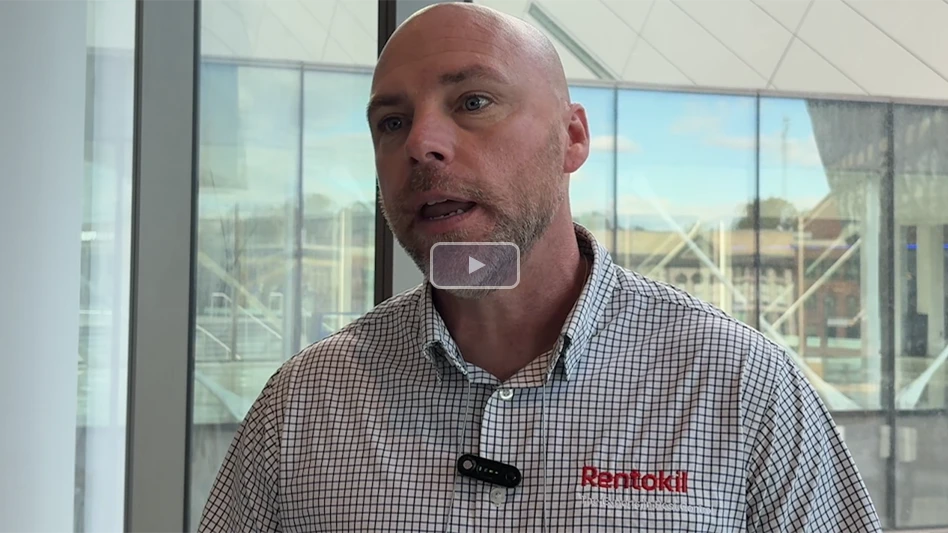
A native of Boynton, Pa, Wright earned bachelor’s and master’s degrees in science from the University of Maryland, and his PhD in entomology from N.C. State. Following a stint as technical director of Wilson Pest Control, Winston-Salem, N.C., Wright returned to N.C. State in 1963, where he retired as a professor emeritus in 1995 with more than 150 published research and teaching articles.
One of Wright's legacies to the pest control industry was serving as the inspiration behind Blanton Whitmire's crack and crevice technology. In 1997, he secured two Distinguished Professorships on behalf of N.C. State - one of which was established in his name - from Whitmire Research Laboratories.
Wright was a gifted educator who loved to teach and share his knowledge with others. In addition to teaching and mentoring entomology students at N.C. State, Wright was a longtime presenter at North Carolina Pest Management Association training events. In 2011, Wright was recognized as a Crown Leadership Award winner.
In 1953, Wright married Velma Creech and over the years they traveled to all 50 states and 10 Canadian provinces. In the earlier years, they were members of Hillyer Memorial Christian Church and more recently Cross Assembly. He also conducted genealogical research and a number of articles have been published on his findings.
Wright was preceded in death by his parents. He is survived by his wife, Velma C. Wright, daughter Lisa (Lawrence) and his granddaughter, Myah.
Donations can be made in his memory to the Alzheimer’s Association. Visitation and burial are private. Arrangements are being handled by Mitchell Funeral Home and Newman Funeral Home.
| Dr. Coby Schal Remembers Charlie Wright Editor's note: Dr. Coby Schal, the Blanton J. Whitmire Distinguished Professor at North Carolina State University's Department of Plant Pathology, penned the following tribute to his longtime colleague and friend. Charlie was the most modest, mild-mannered, stay-in-the background, yet highly accomplished professor, I have known. He savored educating and mentoring students in the science and art of structural pest management, and promoting the professional growth of PMPs. Even before joining NC State as a professor, I was well-aware of Charlie’s philosophy that pest control in and around homes should not rely on broadcast applications of pesticide formulations that were developed for agricultural crop protection. Charlie was greatly influenced by the residential residue analysis of his long-term colleague Ross Leidy and developed the perspective that the ecology of indoor pests and their proximity to humans—especially children—should prescribe safer alternatives. Together with Mr. Whitmire, President of Whitmire Research Laboratories, Charlie documented that targeting the cracks-and-crevices that harbor pests not only reduced the amount of insecticides used, but also their translocation and contamination of other household surfaces. Charlie served as the scientific inspiration for Mr. Whitmire’s ideas and his NC State research program generated empirical evidence for these concepts. Through his long-term collaboration with Dr. Wright, Mr. Whitmire recognized the importance of research and higher education to his industry and he endowed two professorships in the Entomology Department at NC State. When I arrived at NC State as the inaugural Blanton J. Whitmire Distinguished Professor, Charlie greeted me with kindness and Southern hospitality. He immediately introduced me to his two Masters students, who later completed their PhD with me. He introduced me to leaders of the NC Pest Control Association (most of whom he mentored), and he and Gene Dupree, his long-time research associate, took me to Southeast NC counties to see for myself that indoor pests have not read the “urban entomology” texts—they are quite content infesting rural and agricultural trailer parks in Duplin and Sampson Counties. Charlie and I had very different backgrounds that informed our urban entomology viewpoints. Nevertheless, we connected on so many levels; most importantly, we converged on the idea that indoor pests are harmful and need to be eradicated rather than “managed”, a philosophy that continues to guide my research. Many of his colleagues in urban entomology were unaware of his zeal to right the wrongs of income inequality and institutional poverty. He understood environmental injustice before the term was coined, and understood that insect pests were major contributors to health disparities in low-income rural and urban communities. Charlie’s legacy lives with the dozens of PMPs he trained and mentored, including some of the leaders of the pest management industry, and with the social consciousness he instilled in his mentees. |
Latest from Pest Control Technology
- Forty-Seven Percent of PCOs Increased Mental Health Care Benefits, Poll Finds
- Samantha Malone on Growing Confidence, Building Relationships Through ELP
- Surge in Pest Populations Expected This Spring, NPMA Bug Barometer Finds
- CoverAll Pests Celebrates 10 Years in Business
- ICUP 2025 Program Announced
- Aedes Mosquito Killers Now Available in the U.S.
- ProSource Pest Solutions Opens New Location in Waterbury
- Fruit Flies





